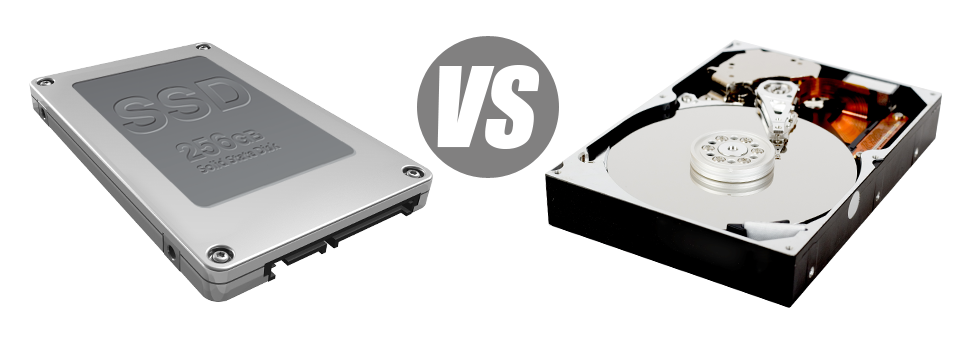If you have a website or maybe an application, speed is really important. The quicker your site performs and then the quicker your web applications perform, the better for you. Because a website is only an offering of data files that communicate with one another, the systems that store and access these data files have an important role in site performance.
Hard disk drives, or HDDs, have been, right up until recent times, the most reliable systems for storing information. However, lately solid–state drives, or SSDs, have been gaining popularity. Look into our comparability chart to determine if HDDs or SSDs are more effective for you.
1. Access Time
With the release of SSD drives, data accessibility speeds are now tremendous. Due to the new electronic interfaces found in SSD drives, the regular data access time has been reduced into a record low of 0.1millisecond.
HDD drives even now makes use of the very same fundamental data file access technique that was actually developed in the 1950s. Though it has been substantially advanced ever since, it’s slow as compared to what SSDs will offer. HDD drives’ data file access speed can vary between 5 and 8 milliseconds.
2. Random I/O Performance
The random I/O performance is very important for the operation of a file storage device. We’ve conducted detailed tests and have identified an SSD can manage at least 6000 IO’s per second.
Over the very same tests, the HDD drives demonstrated to be much slower, with only 400 IO operations managed per second. Even though this may seem like a significant number, if you have a busy web server that hosts numerous well–liked web sites, a slow hard disk drive can cause slow–loading web sites.
3. Reliability
SSD drives lack any moving components, which means there’s much less machinery included. And the fewer physically moving parts you’ll find, the fewer the chances of failure can be.
The standard rate of failure of an SSD drive is 0.5%.
As we have observed, HDD drives make use of spinning hard disks. And anything that utilizes a number of moving elements for prolonged time frames is susceptible to failure.
HDD drives’ normal rate of failure ranges between 2% and 5%.
4. Energy Conservation
SSDs lack moving elements and need hardly any cooling down energy. Additionally they call for very little energy to work – trials have indicated that they can be operated by a normal AA battery.
As a whole, SSDs take in between 2 and 5 watts.
HDD drives are known for becoming noisy; they can be at risk of getting hot and whenever there are several disk drives in a single web server, you will need a further a / c unit exclusively for them.
All together, HDDs use up somewhere between 6 and 15 watts.
5. CPU Power
As a result of SSD drives’ better I/O efficiency, the main server CPU can easily process data requests much faster and preserve time for other procedures.
The standard I/O delay for SSD drives is just 1%.
When using an HDD, you will have to dedicate time looking forward to the outcomes of one’s data file request. Consequently the CPU will continue to be idle for more time, expecting the HDD to respond.
The common I/O delay for HDD drives is approximately 7%.
6.Input/Output Request Times
The vast majority of Patrol Bureau’s brand new web servers moved to only SSD drives. All of our lab tests have demonstrated that utilizing an SSD, the normal service time for an I/O request although running a backup remains under 20 ms.
With the exact same server, however this time built with HDDs, the effects were different. The normal service time for an I/O call changed in between 400 and 500 ms.
7. Backup Rates
Talking about back–ups and SSDs – we’ve observed a significant development in the back up rate since we transferred to SSDs. Today, a regular hosting server back up requires just 6 hours.
On the other hand, on a hosting server with HDD drives, a similar data backup may take three or four times as long in order to complete. An entire back up of any HDD–driven server often takes 20 to 24 hours.
With Patrol Bureau, you can find SSD–powered website hosting services at cost–effective price points. Our shared hosting plans as well as the VPS web hosting plans include SSD drives automatically. Apply for an account here and see how your web sites will become much better instantly.
Hepsia
- Live Demo
Service guarantees
- Sign up today. There aren’t any setup service fees and you will have total root access to the server. 99.9% network uptime is guaranteed.
Compare our prices
- Have a look at our prices and pick the very best Virtual Private Server for your dynamic sites. You can upgrade to a more powerful VPS Web Hosting package with a click of the mouse.
- Compare our hosting plans
Contact Us
- Our representatives are on duty for you night and day to resolve any sort of queries in relation to our VPS Web Hosting platform. 1–hour response time warranty.














